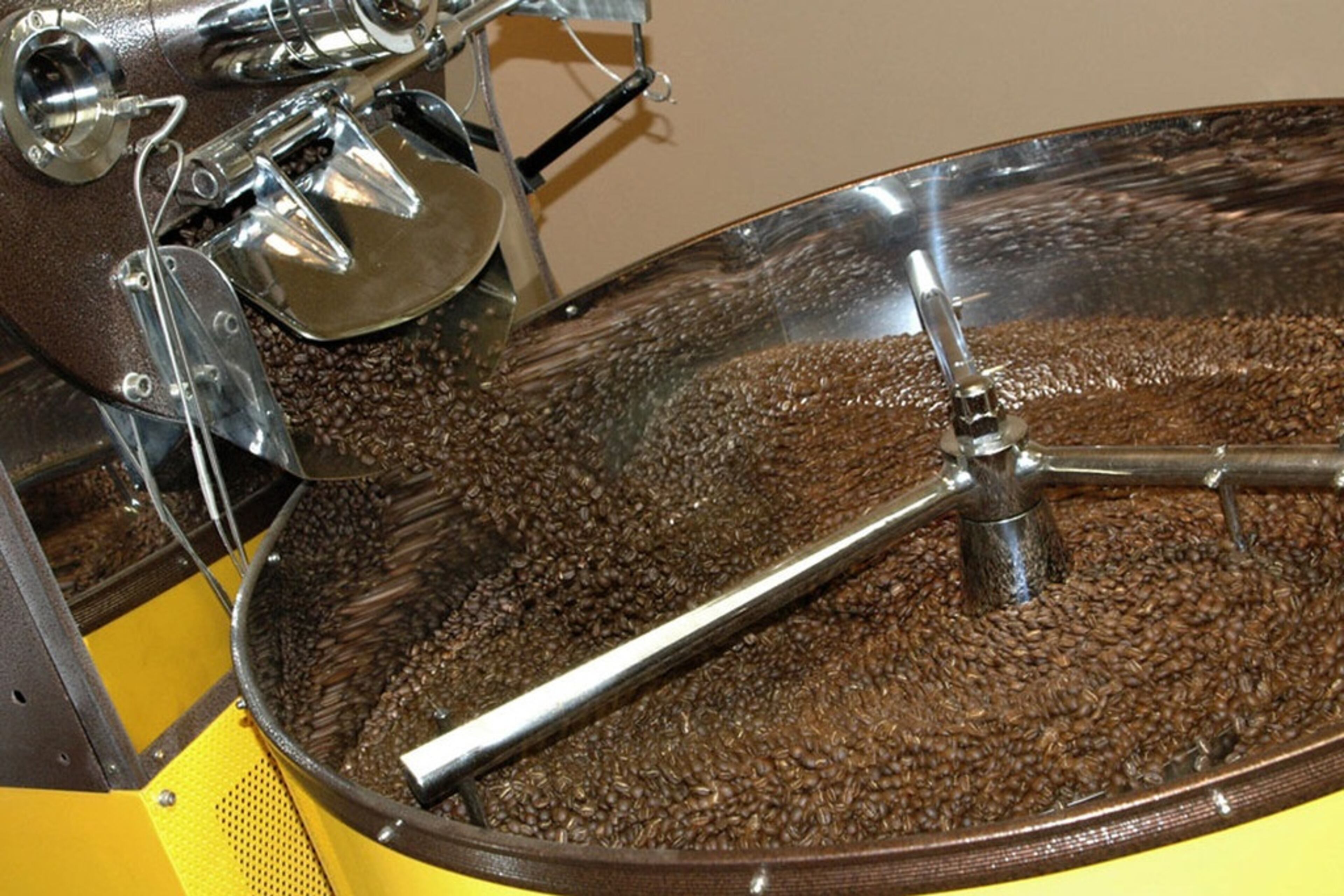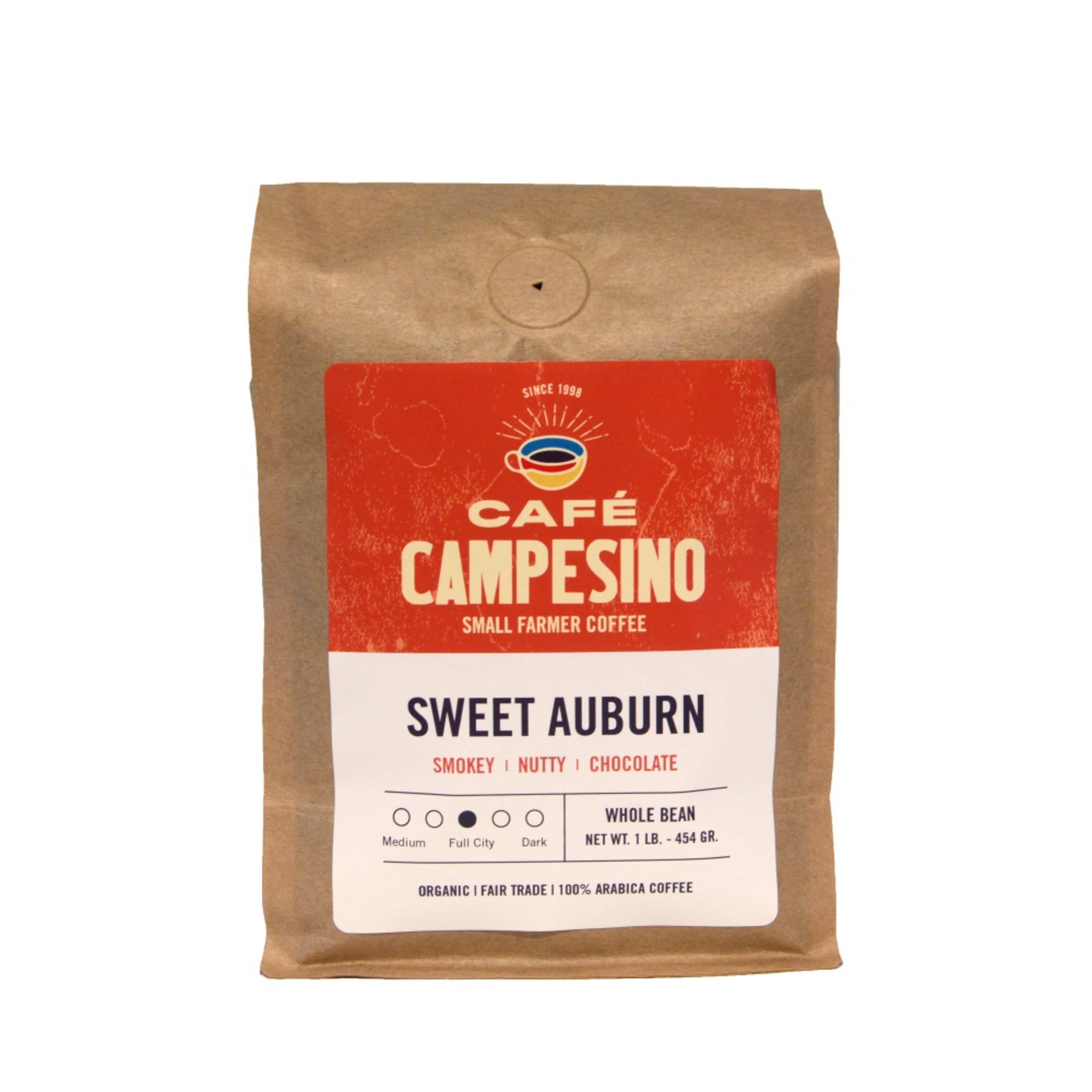Made in Georgia: Cafe Campesino for great coffee, better life for farmers
Social justice, not the quest for a better cup of coffee, was the cause that launched Cafe Campesino. Lucky for us, excellent coffee was the result.

More than 20 years ago, Bill Harris, co-founder of Cafe Campesino was in Guatemala working with Habitat for Humanity when someone buried a farmer's coffee plant under a load of dirt. The farmer was unwilling to sacrifice the plant for the construction and as Harris listened to the farmer's concerns, he began to understand the problems of small scale coffee farmers including how difficult, if not impossible, it was to get a fair price for their coffee. Every small coffee plant was important to that farmer.
The conversation fueled Harris’ decision to found Americus-based Cafe Campesino, as a company that would work directly with coffee growers and pay them a fair wage for their efforts. In 1998, Cafe Campesino imported their first 40,000-pound container of green coffee and began selling the beans to coffee roasters.

Two years later, Harris helped organize a buying cooperative, Cooperative Coffees, made up of like-minded roasters across North America who wanted to buy and import green coffee while paying the farmers a fair wage.

Cafe Campesino itself shifted its focus from importing coffee to roasting coffee and now, each week, Cafe Campesino roasts about 2,000 pounds of green coffee in a Quonset hut repurposed as coffee roastery.
The company also operates a coffeehouse and restaurant in downtown Americus and a coffee training campus certified by the Specialty Coffee Association. They offer classes for baristas and classes for the home coffee brewer. “We call it our lab, and it is a great way for us to showcase small-scale coffee farmers,” said Pomeroy. “People come from all over the world to be trained as baristas, to learn how coffee is grown and processed and how it should be brewed.”

The coffee scene is very different now than it was 20 years ago when Cafe Campesino first started. Specialty coffees were just getting noticed. People were learning to appreciate better coffee and pay a premium for it.

Tripp Pomeroy joined Cafe Campesino in 2004. “Consumers were introduced to coffee that didn’t taste like water. They drank lattes, cappuccinos and macchiatos. That created a demand for higher quality coffee and created a proliferation of very viable, independent coffee houses. We were able to attract coffee consumers who cared about great tasting coffee, but who also understood that paying a fair price to small-scale organic farmers was the right thing to do,” said Pomeroy.
He notes that 20 years ago, there were only a few coffee roasters in Georgia. “Now there are dozens. We stand out for our commitment to small-scale farmers and careful batch roasting that brings out the best flavor profiles in our coffee and allows us to keep it as fresh as possible.”

Cafe Campesino offers both single origin coffees and blends. Their coffee is available for purchase online and is served in coffeehouses like Banjo Cold Brew Coffee in Avondale Estates, Revolution Doughnuts in Decatur and Sentient Bean in Savannah.
Cafe Campesino started in Americus and stays in Americus for many reasons. “It’s an advantage being in a small town. We have a great community including local investors who have helped us grow. We have a great staff that appreciates the high quality of life in Americus. And we enjoy bringing people here to our coffee lab and coffeehouse and restaurant," said Pomeroy.
Harris and Pomeroy continue to visit coffee farmers across the globe. Many of those farmers have formed partnerships, referred to as “co-ops” or cooperatives, to help negotiate fair prices for the coffee they work so hard to produce.

Café Campesino and Cooperative Coffees work only with farmer cooperatives, organizations that provide a variety of benefits to their small-scale farmer members including ownership, technical support and negotiation for fair pricing.
This is important as farmers deal with the impact of climate change which can impact their harvest and the resulting income.
“We at Cafe Campesino have created a supplemental program, the Trading Partner Resource Network, so that coffee consumers can make direct financial contributions to the cooperatives," said Pomeroy.
These financial contributions enable the farmer cooperatives to deepen their outreach to their members, especially in organic cultivation techniques.

“[Here in the States] most of us have one thing the farmers don’t have. It’s money. But money’s a tricky thing to give to people. Cafe Campesino knows the co-ops and has worked with many of them for more than 15 years. We know if we send $100 every month, it will make a real difference. It means the technical support guy can be reimbursed for his gas as he goes from farm to farm. It means the young people learning how to cup coffee can be paid during their training.”
Pomeroy says a great cup of coffee, properly prepared, is what opens the door. "Long-term relationships get the ball rolling. But a better quality of life for small-scale farmers is what this is all about. We think we should all be able to thrive, whether we’re drinking the coffee or growing it.”
RELATED:

